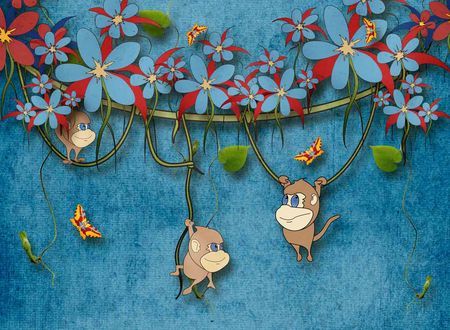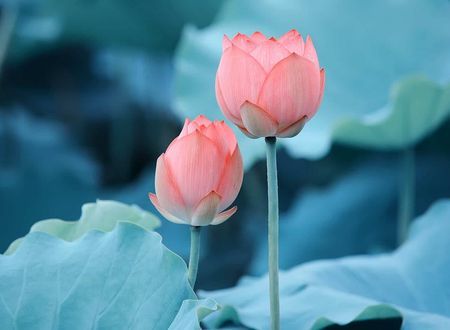Right now as this post goes live on my blog, I’m sitting in zazen with 100 eager seekers of truth, in a meditation retreat, discoursing on Zen, the path of no path, the way of no way. By a quiet lake, as twilight emerges on the horizon and a blanket of serenity and silence covers our outer and inner world, I felt it would be most apt to share my thoughts on Zen.
Let me begin with a beautiful aphorism, Hana wa hiraku bankoku no haru, from Moon by the Window by Shodo Harada Roshi:
“A single flower blooms and throughout the world it’s spring. In Zen, the word flower often refers to the Buddha, who is said to have been born under flowers, to have become enlightened under flowers, to have transmitted the Dharma with a flower, and to have passed away under flowers.
“When the Buddha was enlightened under the bodhi tree, he saw the morning star and exclaimed, “How wondrous! How wondrous! All beings from their origin are endowed with this same bright clear Mind to which I have just awakened!” For forty-nine years the Buddha taught that each and every person has the possibility of awakening and that this opportunity to awaken is the deepest value of being alive…
“We too can be born and can die under flowers, can finish this life as the Buddha did.”
Hana wa hiraku bankoku no haru
When a single flower blooms, it is spring throughout the world.
This is Zen in a nutshell. Our whole world lights up when our mind is at peace, when we are happy within. And, it’s all doom-and-gloom if our mind is indisposed. When the flower of the mind blooms, it is spring all around. The question is how to ensure that this flower blossoms and remains in bloom? How to care for this flower?
In the famous Zen monastery of Sogenji, the abbot, Gisan Zenrai Zenji, once asked his disciple for a bucket of water so he could take a bath. Gisan had led an austere life. He knew the importance of every drop of water, for he had grown up saving rainwater and using it for survival on non-rainy days. The plants, trees and herbs in the monastery had been reared by Gisan like his own children in frugal conditions, surviving solely on careful harvesting of rainwater.
The new attendant brought a bucket of water which turned out to be too hot. Not wanting to be late for meditation by waiting for the water to cool down, Gisan asked for a bucket of cold water instead. From the well by the back gate of Sogenji, the disciple brought more water. It took some more trips to get the water temperature right. Gisan told his attendant that no more water was needed.
Finishing the story in the words of Harada Roshi taken from Morning Dewdrops of the Mind, I quote:
Having been told this, the monk took the little bit of water left in the bottom of the bucket, threw it away nearby and placed the bucket upside down. Seeing him do this, Gisan Zenrai Zenji yelled, “You idiot! You just threw away that little bit of water on the ground and turned over that bucket!”
Gisan continued: “At the moment you did that you were only thinking of that as just a little bit of water and were therefore carelessly throwing it away, weren’t you? Why didn’t you go just one step further, especially knowing that this is the time of the year when there’s never enough rain? Why didn’t you put it on the garden’s trees or flowers? If you had put it on the tree it would have become the very life of that tree! If you had put it on the flowers it would have become the very life of the flowers and lived on. Why do you begrudge such a small effort as that?”
With these scathing words he severely reprimanded his disciple. Continuing, he said, “In even one drop of water, no matter how tiny a drop, the water’s great value doesn’t change at all! If you can’t understand this value of one single drop of water, no matter how hard you train you’ll never become someone who can give life to that training.”
Gisan had always lived on the few drops of water provided by the rain. The disciple changed his name to Tekisui meaning one drop of water.
The way to abide in equanimity of the mind begins by being mindful of our thoughts. (Perhaps, Gisan too could have been more mindful with his words. Personally, I wouldn’t yell at or chastise anyone like that, no matter what the reason.) When you find yourself in a tug of war with your restless mind, simply pause for a few moments. Take a few deep breaths. Ask yourself, “What am I thinking right now?” Look around and become aware of everything around you. The room, color of the walls, paintings, doors, windows etc. Let your mind win. Let it take the rope. Battle no more. Instead, be mindful of its play. Just sit and watch how it generates thoughts. Become a spectator. It’ll slow down and then still itself. Like every drop of water counts even in a gushing waterfall, every thought matters in our ever-moving mind. Thinking is mind’s only occupation and it is a tiring one. Awareness of our thought patterns is the first step in calming the mind. And, awareness, I may add is not possible without attention.
An attentive mind, without exerting, in a natural state, free of mental, religious and intellectual constructs, is the basis of Zen. Effortless attention is the only way to be in the present moment. Zen is when the mind is aware of its own presence. It’s an incredibly empowering and calming feeling — to be aware of your mind and understand it.
As D.T. Suzuki said, “The idea of Zen is to catch life as it flows.” This sums it up neatly. Our life is flowing, it’s bubbling inside us, while we worry about how things could have been or should have been. We have all these ideas, notions and preferences on what kind of people we want and the circumstances we want to be in. Perhaps, there’s nothing wrong with that. How about though, if we learned to flow with the river of life? What if we learned to enter into the temple of silence where the fragrance of awareness and light of wisdom add glory to every pinch of existence? That would be a Zen mind if you see what I mean. Just everything as it is. No interpretation, no judgment. When you get past the jokes of life, you understand its humor.
Let it be. Let us see. Simply, let it Zen.
Peace.
Swami
A GOOD STORY
There were four members in a household. Everybody, Somebody, Anybody and Nobody. A bill was overdue. Everybody thought Somebody would do it. Anybody could have done it but Nobody did it.
Don't leave empty-handed, consider contributing.It's a good thing to do today.









Comments & Discussion
16 COMMENTS
Please login to read members' comments and participate in the discussion.